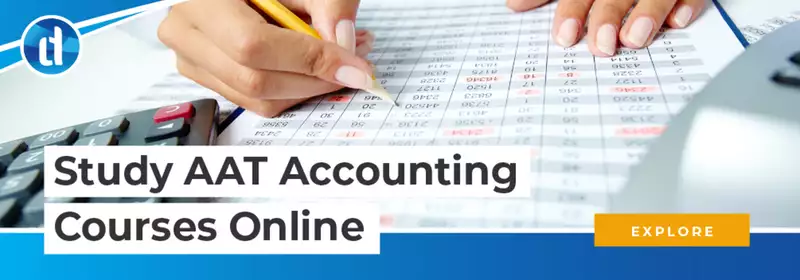Deciding whether it’s better to study economics or accounting depends on many factors. Both subjects deal with business and numbers and are great choices for aspiring business professionals. But the skillset you’ll gain will be quite different.
Accounting is a technical subject that focuses on facts as opposed to theory. Dealing with the movement of money, taxation and keeping accurate records through financial reports and audits.
Economics, on the other hand, concentrates on human behaviours relating to resources. And the theories behind the decisions people make regarding money, raw materials, land and labour.
So, where accounting takes the magnifying glass to the finer details, economics is all about big picture thinking.
Which is best for you will depend on which style of work you prefer and where you see your career going. Plus, the level of certainty you want in your journey.
We compare the job opportunities, progression, skills and subject overall, to help you make an informed decision.

Curriculum
Though economics courses are generally offered within business schools, the field is considered a social science. This is because it focuses on how people cope with the scarcity of resources.
In your studies, you’ll learn about macroeconomics and microeconomics, as well as other subspecialties within the field. Macroeconomics looks at economies and how they work on a national or global scale. Whereas microeconomics studies the decision making on a smaller scale. Such as that of individuals, families, businesses and organisations.
It’s a much broader, theoretical field of study that is less specialised compared to accounting. Your coursework will typically be on areas like trade and monetary theory, game theory public policy and the labour market. After which you’ll gain a well-rounded perspective that will help you when considering topics from finance to art and politics. However, you will gain a less technical skillset.
Accounting, on the other hand, studies economic and managerial perspectives. But only those concerning business activity and evaluation of business performance.
You’ll study the best ways to make financial records of business transactions. Plus, how to prepare statements concerning the assets, liabilities and operating results of a business. You’ll learn the principles and practices of financial reporting, taxation and auditing. And develop your technical skillset by practising the application of these principles like creating balance sheets and tax forms.

Skills for your CV
Economics courses will provide you with skills that allow you to apply economic principles and models in many situations. You'll also understand the large driving forces which shape social policy and financial markets. And be well-equipped to analyse statistical data.
Outside of this, the transferable skills you'll also develop include:
- How to present and explain your findings and complex data
- Ability to handle complex data and apply both mathematical and statistical analysis methods
- Problem-solving through mining information, drawing conclusions and providing recommendations
- Tech skills through using specialised computer software
- How to organise your time from completing tasks within designated time frames
- Analytical skills from analysing research methods, data, conclusions and recommendations.
An accounting course instead provides you with knowledge of accountancy practices, commerce, industry and finance. Aside from your technical accounting skills, the transferrable ones you’ll pick up are:
- The ability to argue and negotiate
- A thorough understanding of business organisations and operations
- Numerical and quantitative skills
- Effective problem-solving and the ability to analyse data
- Both oral and written communication skills
- An understanding of global business issues
- How to be an effective entrepreneur

Job Market
Most students of accounting courses go on to become an accountant and work their way up to chartered status. Though some go into related fields like auditing or finance. The job market for accountants provides ample opportunities. Currently, it’s one of the most in-demand finance jobs in the UK with 80,000 additional accountants needed by 2050.
Economics students have a less defined route ahead of them. Studying social policy and financial markets can open opportunities to work in finance, accountancy and government departments. But economist roles for some organisations may require specialist postgraduate qualifications.
There are plenty of jobs where your skills are useful, you’ll just have to do a bit of research and align your abilities to that role. A lot of economics students actually find employment in accounting. Taking professional exams to gain the required technical skillset once employed.
Other jobs for economics students include compliance officer, data analyst, financial risk analyst, statistician and external auditor.

Progression Opportunities
The field of accounting again benefits from fairly clear-cut progression routes. Whatever arm of accounting you pursue has senior positions that can be secured with additional studies and passing professional exams.
Aside from earning chartered accountant status, you could study postgraduate level qualifications to become a specialist in your area.
As career paths for economics students are less straightforward, mapping out progression opportunities isn’t easy. There are plenty of roles you can embark on that lead to prosperous progression routes. But students generally find their ideal route during their studies. By researching avenues that appeal to them once they get a feel for the work.
Once you graduate, you could study specialised areas at postgraduate level, like the finance industry if that was your preference. Taking an MSc in actuarial science, or a PhD in specific areas of finance like banking or trade statistics. Which again would position you as a specialist and make you more desirable to employers.

Getting Started
Though economics and accounting both deal with money and business, they are very different disciplines.
If you enjoy looking at the bigger picture and assessing trends in behaviour, cause and effect, consider studying economics.
Whereas you may prefer to focus on details, meticulously categorising and organising everything into a perfect system. In that case, you’ll likely enjoy accounting.
Consider these concepts and your strengths and weaknesses before enrolling on either course.
Accounting can set you up nicely for a job right out of university. While economics gives you the framework to understand politics, finance and decision making. Helping you in many careers you may decide upon and giving you more freedom to move careers later on.
You can study our Business Economics course to get a feel for that subject and put your qualification towards a university place. Or study one of the many AAT Accounting courses that prepare you for the profession and university level study.
Find out more about our accounting courses by viewing our new AAT Faculty below!



















